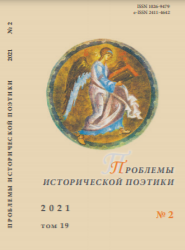Художественная теодицея в романе Ф. М. Достоевского «Братья Карамазовы»
Artistic Theodicy in The Brothers Karamazov by F. M. Dostoevsky
Author(s): Valentina Nikolayevna StepchenkovaSubject(s): Christian Theology and Religion, Studies of Literature, Russian Literature, Eastern Orthodoxy
Published by: Петрозаводский государственный университет
Keywords: F. M. Dostoevsky; “The Brothers Karamazov”; suffering; theodicy; “Euclidean mind”; belief; immortality of the soul;
Summary/Abstract: The aim of the research study is to explain the artistic theodicy of F. M. Dostoevsky. The justification of God before the world he created, in which evil forces are allowed to act, is one of the principal themes in the novel. In those scenes of the novel that raise the theme of innocuous suffering, Dostoevsky offers to comprehend the meaning of suffering. Dostoevsky sees it as not only as a result of the influence of an evil force, but also as a path to perfection for human beings and a way to experience communication with God. Dostoevsky shows that from a Christian spiritual perception of sorrows, one can find the strength to overcome them and see the highest sacred meaning in them. This conclusion is not based on the optimistic theodicy of Leibniz, but only reveals the goodness of God, who is capable of turning the evil, which entered the world along with the Fall, into an opportunity for a person to rise to a new spiritual level. The most important argument of theodicy is love: God’s love for man and man’s capacity to love, overcoming evil. Because of the lack of love, guided only by the “Euclidean mind,” Ivan returns his “entry ticket” to harmony. The logical conclusion of the research study states that Dostoevsky’s key to theodicy and the main value in the moral self-determination of man is the belief in the immortality of the soul and the all-goodness of the Creator.
Journal: Проблемы исторической поэтики
- Issue Year: 19/2021
- Issue No: 2
- Page Range: 107-124
- Page Count: 18
- Language: Russian

